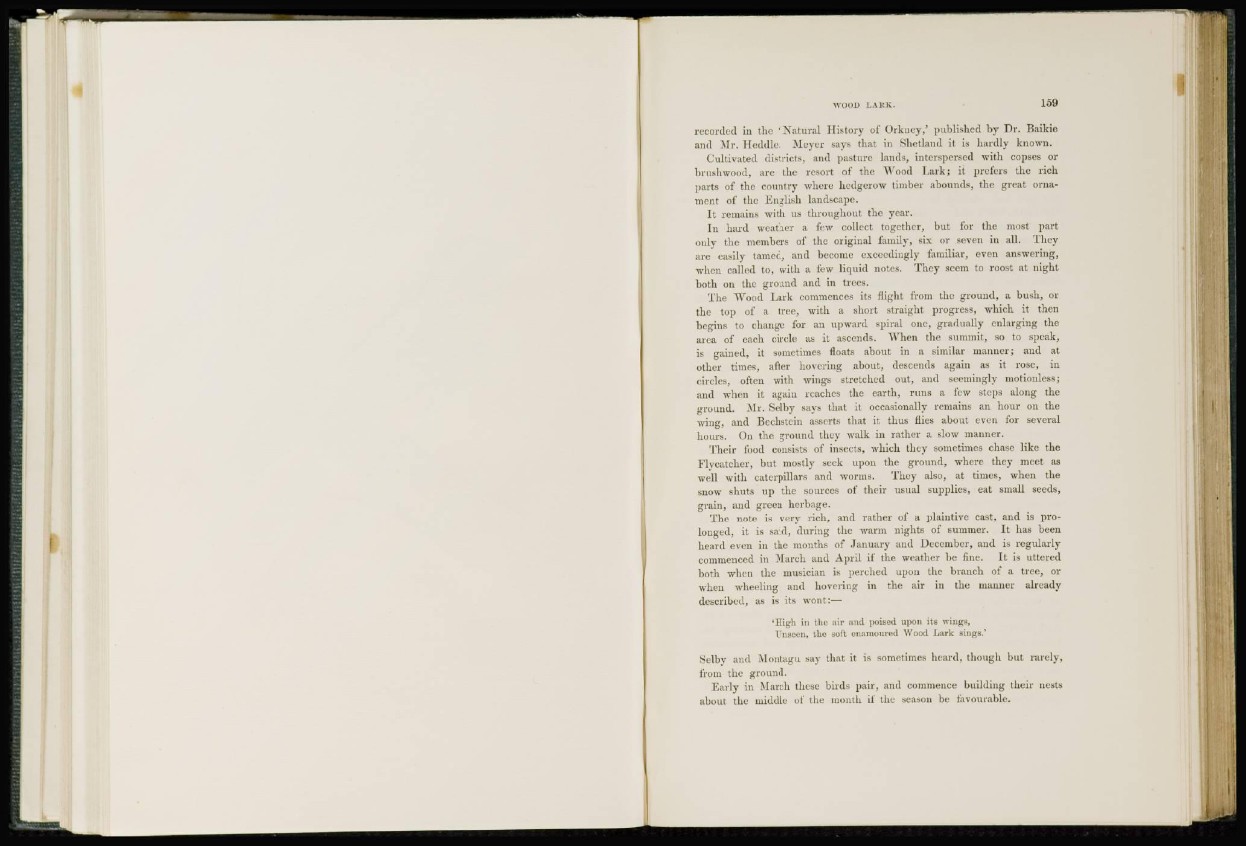
recorded in the 'Natural History of Orkney,' published by Dr. Baikie
and Mr. Heddle. Meyer says that in Shetland it is hardly known.
Cultivated districts, and pasture lands, interspersed with copses or
brushwood, arc the resort of the Wood hark; it prefers the rich
parts of the country where hedgerow timber abounds, the great ornament
of the English landscape.
It remains with us throughout the year.
In hard weather a few collect together, but for the most part
only the members of the original family, six or seven in all. They
arc easily tamed, and become exceedingly familiar, even answering,
wdien called to, with a few liquid notes. They seem to roost at night
both on the ground and in trees.
The Wood Lark commences its flight from the ground, a bush, or
the top of a tree, with a short straight progress, which it then
begins to change for an upward spiral one, gradually enlarging the
area of each circle as it ascends. When the summit, so to speak,
is gained, it sometimes floats about in a similar manner; and at
other times, after hovering about, descends again as it rose, in
circles, often with wings stretched out, and seemingly motionless;
and when it again reaches the earth, runs a few steps along the
ground. Mr. Selby says that it occasionally remains an hour on the
wing, and Uechstein asserts that it thus flics about even for several
hours. On the ground they walk in rather a slow manner.
Their food consists of insects, which they sometimes chase like the
Flycatcher, but mostly seek upon the ground, where they meet as
well with caterpillars and worms. They also, at times, when the
snow shuts up the sources of their usual supplies, cat small seeds,
grain, and green herbage.
The note is very rich, and rather of a plaintive cast, and is prolonged,
it is said, during the warm nights of summer. It has been
heard even in the months of January and December, and is regularly
commenced in March and April if the weather be fine. It is uttered
both when the musician is perched upon the branch of a tree, or
when wheeling and hovering in the air in the manner already
described, as is its wont:—
'High in tlit; air and ]>oised upon its wings,
Unseen, the soft enamoured Wood Lark sings.'
Selby and Montagu say that it is sometimes heard, though but rarely,
from the ground.
Early in March these birds pair, and commence building their nests
about the middle of the month if the season be favourable.